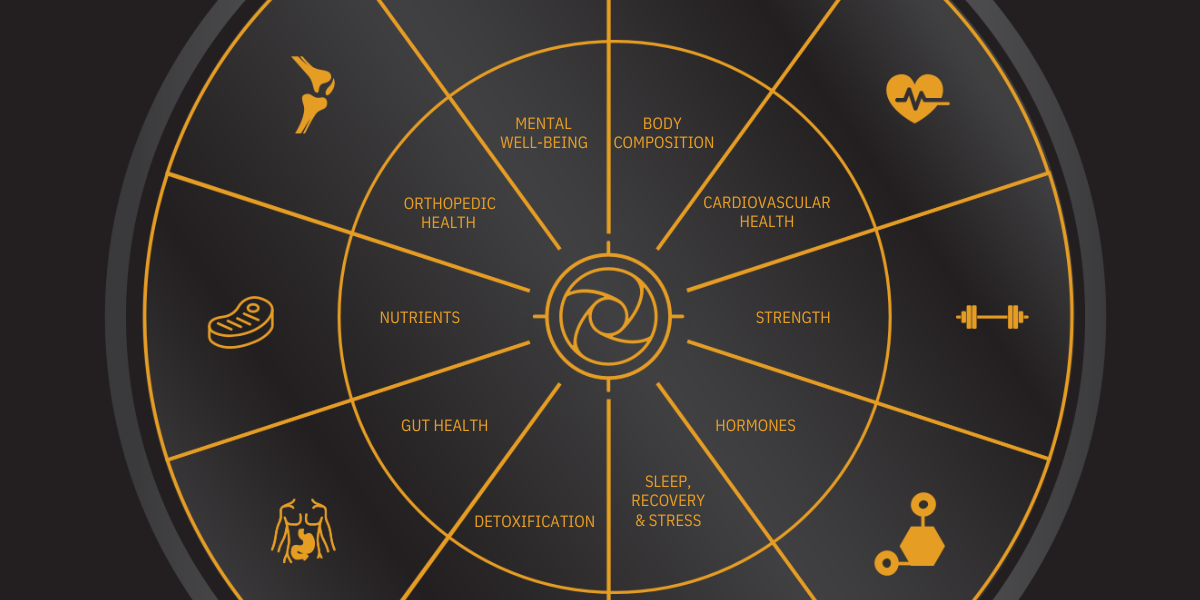4 Signs It’s Time to Switch Up Your Workouts
Are you feeling like your workouts are getting a bit easy? Especially if you have been feeling stuck in a rut, it could be that your workouts...
.png?width=70&height=70&name=Stark_LogoMark%20(1).png)

In the pursuit of optimal health, understanding your body's inner workings is as crucial as personalized fitness regimens and balanced macros. One marker that has garnered attention for its role in health and disease is C-reactive protein (CRP). Spanning from the prevention of chronic illnesses to refining athletic prowess, CRP holds significant implications for your overall well-being. This article will walk you through the intricacies of CRP, from its biological underpinnings to actionable strategies for managing its levels, equipping you with the knowledge to take control of your health.
C-reactive protein, a substance produced by the liver, serves as a pivotal marker in the cascade of events that occur within the body during an inflammatory response. In this context, inflammation is a natural defense mechanism that the body uses to protect tissue from injury or infection. When inflammation kicks in, you'll see a rise in CRP production due to the presence of Interleukin-6, a signaling molecule that shows up in response. Elevated CRP levels are a general indicator of inflammation but not a specific cause, making it a broad, early signal of potential issues that warrant further investigation.
Understanding CRP levels can be a predictor for various diseases, acting as a valuable component of preventive health measures. Individuals with persistently high CRP may be at a higher risk for developing conditions such as type 2 diabetes, high blood pressure, and chronic kidney disease. When it comes to performance, high CRP levels can also lead to greater muscle damage, slower recovery times, and decreased training capacity. This makes routine CRP testing a component of a well-rounded approach to health management, much like monitoring cholesterol.
CRP is not just for flagging potential health risks; it also serves as a checkpoint in the management of certain diseases. For those suffering from autoimmune conditions or recovering from surgeries, CRP levels help physicians track the effectiveness of treatments and the body's response to healing or medication, allowing for more tailored and effective medical strategies.
When it comes to training, CRP testing can be a tool for fine-tuning workout routines. Elevated CRP levels can suggest overtraining, inadequate recovery periods, or issues with nutrition, all of which are critical for those pursuing strength and body composition goals. By recognizing the role of inflammation in muscular health, you can use CRP to adjust your fitness plans and achieve superior results.
Lifestyle can significantly shift the benchmark for CRP in our bodies. Those with sedentary lifestyles, poor dietary habits, and exposure to chronic stressors tend to have higher baseline CRP levels. On the other hand, active individuals, non-smokers, and those who maintain a balanced diet rich in anti-inflammatory foods can keep their CRP levels in check.
Unsurprisingly, what we eat can aggravate or alleviate inflammation. Diets high in trans fats, sugars, and processed foods are often correlated with elevated CRP, while diets rich in omega-3 fatty acids, antioxidants, and fibers can reduce inflammation. This direct correlation offers a powerful strategy to manage CRP levels through conscious dietary choices.
Engaging in regular physical activity, maintaining a healthy weight, and consuming a diet dense in fruits, vegetables, lean protein, and whole grains as well as avoiding food sensitivities can collectively curb the inflammation cascade. Specific foods like olive oil, fatty fish, nuts, and berries are lauded for their anti-inflammatory properties and can be instrumental allies in the fight for balanced CRP levels.
While intense workouts can temporarily spike CRP, moderate, consistent exercise yields long-term anti-inflammatory benefits. Additionally, stress management through techniques like meditation, yoga, or simple relaxation practices can further mitigate the inflammatory response, offering a holistic approach to managing CRP levels.
Regular CRP testing should find a place alongside cholesterol and blood pressure checks as part of a well-rounded health routine. For high-risk individuals such as those with familial heart disease, or those experiencing unexplained symptoms, CRP can provide a valuable snapshot of health status and direct personalized treatment plans.
Understanding C-reactive protein is a foray into self-empowerment and proactive health management. By appreciating the role CRP plays in the inflammatory cascade and its implications for health and fitness, you're equipped to make informed decisions that will resonate within your body's complex ecology. Take the reins of your health, align your lifestyle with the markers that matter, and witness the transformation in your life that arises from a better understanding of inflammation and CRP.

Are you feeling like your workouts are getting a bit easy? Especially if you have been feeling stuck in a rut, it could be that your workouts...

At Stark, we believe that true health encompasses far more than just physical fitness. It's about achieving a harmonious balance across all aspects...